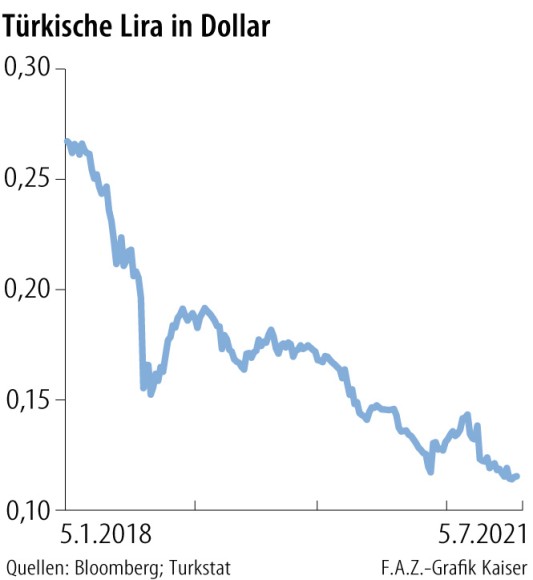Since a long time, the Turkish state has been trying to further delay the main phase of the current overproduction crisis. As in Germany the extension of the suspension of the obligation to file for insolvency, for example, in Turkey the key interest rate has been kept at a very low level for a long time in order to make bonds more attractive for investment.
This artificial respiration recently showed success with record economic growth, which temporarily made up for last year's slump. At the same time, however, the people have to bear the impact of the huge inflation (currently close to 20 percent) caused by the cut in the key interest rate.
According to Turkish media, food prices for basic commodities have risen by 30 per cent within the past year, rent prices in Istanbul have almost doubled. Gas and electricity about 120 (!) percent, and the most affected food types are cucumbers (over 56 percent), courgette (almost 44 percent) and lemons (over 36 percent). For many people in the cities, therefore, there is no longer enough for more than the very most basic food. The tagesschau reports from a shop owner and a craftsman from a working-class neighbourhood in Istanbul:
"I get told off because the prices keep going up. And they blame me for that. But the accusations should be directed at the politicians. What should I do? If I buy more expensive things myself, I have to sell more expensive things myself."
"That can't be true - alcohol and cigarettes have become so expensive. It's really getting us down. I go out for a beer and they demand 20 liras. What does a day labourer earn? 80 or 100 liras a day. If he drinks three beers and buys a packet of cigarettes, all the money is gone. For that he works a whole day. Should he not even be allowed to have a beer in the evening to relax?"
The fact that the key interest rate was raised again significantly in March and has remained almost constant since then has not been able to stop the devaluation of the lira so far. And should the main measure of inflation be tamed, a huge mass of overdue businesses is already waiting in the wings, the end of which will cause a huge wave of unemployment.











